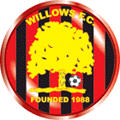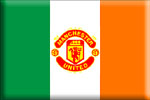Irish Football and the ‘Granny Rule’FIFA Article 18Article 18 of the FIFA constitution states that “any person who is a naturalised citizen of a country by virtue of that country’s laws shall be eligible to play for a national or representative team of that country”. This rule is particularly beneficial for the Republic of Ireland. Over the years there has been very significant emigration however Irish citizenship laws state that no matter where a person is born, anyone whose parent or grandparent is an Irish citizen is entitled to Irish citizenship. The UK, with it’s rich footballing traditions, was the main destination for most Irish emigrants. The combination of FIFA’s Article 18 combined with the Irish citizenship rules offers the Republic of Ireland – a country with a small population – direct access to an enormous reserve of Irish footballers. First Non-Irish Born InternationalIreland’s first ever second generation player was Shay Brennan of Manchester United. Brennan, a full back, was born on 6th May 1937 in Manchester. His parents had emigrated to England from County Carlow. He played for Manchester United on 350 occasions and made his debut just two weeks after the tragic Munich air disaster, scoring two goals. Shay Brennan won his first cap for Ireland on the 5th May 1965 in a 1-0 victory at Dalymount Park over Spain in a 1966 World Cup Qualifier. He went on to win 19 Irish caps for the Republic of Ireland. Shay Brennan died in Waterford in 2000. His appearance in the green shirt of Ireland was to presage a continuous flow of second, and third, generation, Irishmen that were capped by the Republic of Ireland football team reaching a peak during Jack Charlton’s reign as Irish football manager. Johnny Giles Uses the Granny RuleIn the 1970’s Irish player / manager John Giles had no qualms about choosing second or third generation Irish footballers. “I would have picked anybody. I would have loved to have gone with a full Irish team, but if I had the players who were good enough and qualified for me then I would pick them.” One of the best recruits by Giles was current BBC football pundit Mark Lawrenson who qualified to play for Ireland through his mother, Theresa Crotty from Waterford. Former Irish goal keeper, Alan Kelly Snr. who was with Lawrenson’s club, Preston North End, at the time, approached the 18 year old Lawrenson with the proposition that he might play for Ireland. As Lawrenson admitted that the opportunity to play international football as an “18 year old spotty-faced kid playing in the middle of the Third Division [Now League One]” was irresistible especially as there was no other realistic alternative. Mark Lawrenson made his debut in a friendly match against Poland in April 1977 without Johnny Giles having seen him play. Other members of the Irish Diaspora that emerged during the Giles era included Tony Grealish. A Leyton Orient player, Grealish made his debut for Ireland in a friendly match in November 1976 against Norway. Other non-Irish born players that starred for John Giles’ while he was Irish manager included QPR’s Terry Mancini. After Giles former Irish manager Eoin Hand benefited by having the likes of Seamus (Jim) McDonagh, Chris Hughton, Gary Waddock, and Michael Robinson available through the granny rule. Robinson qualified because his mother, third generation Irish, took out Irish citizenship so that her son would also qualify for an Irish passport. Jack Charlton Exploits the Granny RuleIt was during the Jack Charlton era that the floodgates opened to the pejoratively named, and largely unfair term, plastic Paddies. Many of the non-Irish born players that have donned the green jersey of Ireland were anything but plastic Paddies and have performed brilliantly and heroically for their national team. Having said that there is no doubt that some of the players that have declared for Ireland had tenuous, if any, links with Ireland. Notably Tony Cascarino, who revealed in his autobiography in 1996 that he had qualified to play for Ireland via his grandmother – but the problem was that he was adopted and actually had no known blood ties to Ireland. Nevertheless no-one could ever question commitment to Ireland of the cockney with the Italian name when he played in the Irish jersey. Charlton Rules Out League of Ireland PlayersAfter Jack Charlton assessed the pool of football talent available to him in 1986 he determined that he needed to supplement the Irish squad and he ruthlessly exploited the granny rule. He actively canvassed in the UK for Irish qualified players. He had notices placed on the notice boards at a number of English clubs inviting English-born players, that had Irish lineage, to declare for Ireland. He defended this to the media and the Irish public thus “… you want me to compete with the best in the World, I’ve got to have the f*****g best in the world. And it’s not here in Ireland that I can find it, I’ve got to go to England to find it, or Scotland to find the quality that will make you a team that will compete with the best in the world. Now, if you don’t want to do that, tell me, and I’ll f*****g concentrate on the League of Ireland and we’ll win nothing. But give me the freedom to produce results and I’ll produce results.” And he was true to his word. Charlton’s Use of Granny Rule is VindicatedHis trawl in the UK yielded early results with the recruitment of John Aldridge and Ray Houghton from Oxford United. They both made their Irish international debuts in Jack Charlton’s first match in charge of Ireland. Following an inauspicious loss 0-1 loss to Wales at Lansdowne Road (now Aviva Stadium) both players went on to feature prominently in some of the most memorable occasions in Irish soccer history. Once Jack Charlton achieved the holy grail of Irish soccer by qualifying for a major championship finals and then went on to beat England 1-0 in Euro ’88, any lingering resentment to his use of the granny rule disappeared. Other important Anglo-Irish players to emerge during the Charlton era include Andy Townsend – who went to become Irish captain, Mick McCarthy – already capped by Eoin Hand, Phil Babb – a star of the 1994 World Cup finals, and Jason McAteer. During the Charlton years there were times that a Republic of Ireland team took to the field with just three or four Irish-born players in the line up. For example, the team that famously beat England 1-0 in Stuttgart in the 1988 Euro finals contained just three Irish-born players; Pat Bonner, Steve Staunton and Kevin Moran. The team that defeated Italy 1-0 in Giants Stadium during the 1994 World Cup finals included just four Irish-born players; Packie Bonner; Denis Irwin; Steve Staunton, and Roy Keane. Last All Irish-Born Irish Soccer TeamAlthough the English FA have taken measures to stop the loss of talented footballers and have actually capped some players to prevent them declaring for Ireland, the stream of non-Irish born players that wish to play for Ireland continues to this day. This includes American Joey Lapira who qualified through his mother. Lapira earned a full cap against Ecuador in May 2007 under the then Irish manager Stephen Staunton. [An interesting aside is that Lapira was the first amateur footballer to play for Ireland since Willie Browne who had won the last of his three caps almost exactly 43 years earlier]. The last all Irish-born football team was the Republic of Ireland team selected to play Turkey in the 1976 European Championship qualifier at Dalymount Park on 29th October 1975. John Giles was the player/manager at the time. Sources: Irish Soccer History – Some key events, developments, people, and places in Irish football Spain V Ireland 1965 – Glenmalure Park – Granny Rule & Ireland – John Giles & Shamrock Rovers |
December 2, 2025





